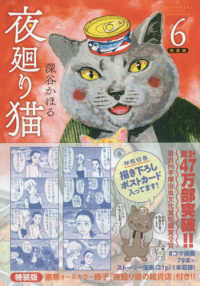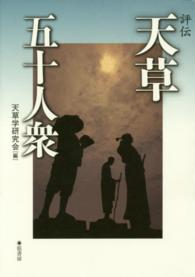Full Description
In the early 1950s, numerous cases of organic mercury poisoning were discovered in the fishing villages around Minamata, Japan. Yet for decades after, victims of what is now known as Minamata disease suffered neglect, discrimination, and ostracism by Minamata residents, local government, labor unions, Minamata disease certification committees, and fishers' cooperatives. Fifty years later, renewed efforts began to conserve the environment and reconcile with victims of poisoning, including a flurry of museum-building, citizen waste recycling campaigns, and conferences, symposia, and exhibitions. But this rapprochement in the 1990s took place slowly and with difficulty, as the pain of previous decades was still alive and aching. Ishimure Michiko served as a key activist and spokesperson for the Minamata protest movement, producing over forty volumes of writings in various genres: docufiction, historical novels, reportage, autobiography, poetry, children's books, and a Nō drama. Beyond playing an outsized role in organizing the Minamata struggle, Ishimure influenced the movement's cultural history and memory and articulated its symbolic legacy.
Paradise in the Sea of Sorrow is a powerful record of victims' suffering and the movement to support them. Its lyrical descriptions of fishing villages and fishers' way of life, as well as of the scenic beauty of the Shiranui Sea area, are among the most effective in contemporary Japanese literature. Paradise is a work of testimonial resistance literature—a militant, hybrid autoethnography featuring both a local community as a plurality of speakers and an autobiographical voice through which Ishimure plays an unassuming participant observer who insists on the accuracy, truthfulness, and necessity of her testimony.







